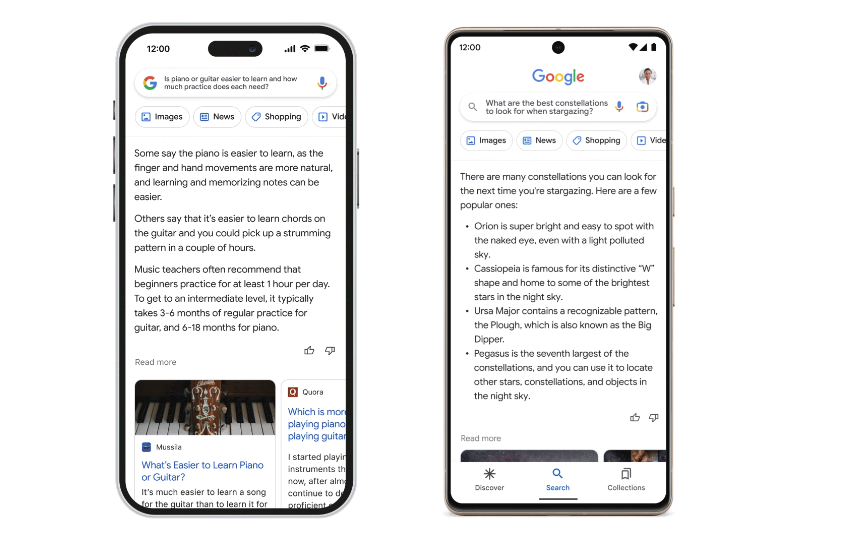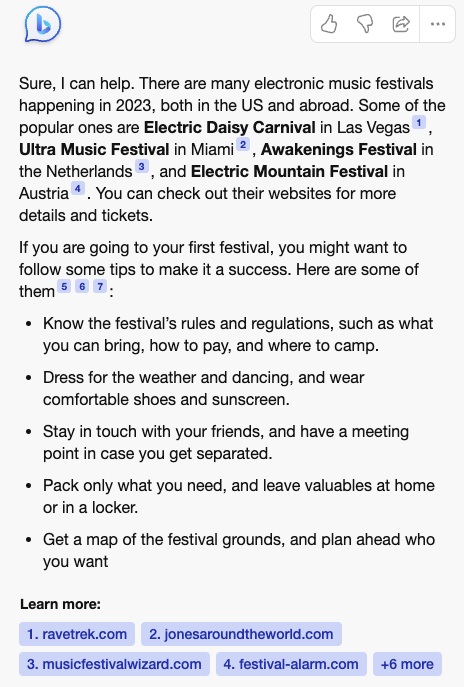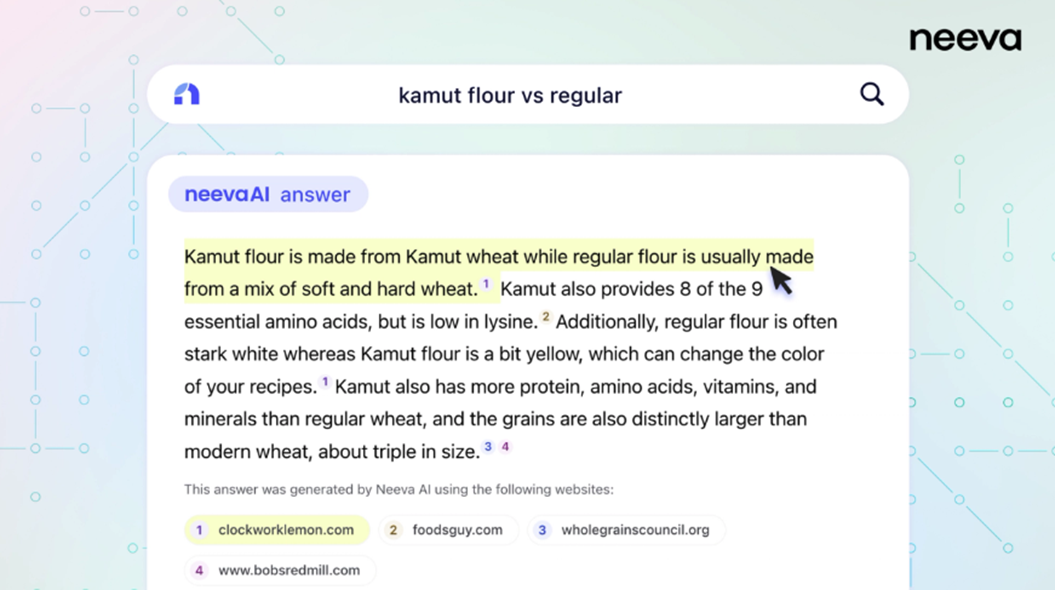There is a tremendous amount of noise around the usage of AI in marketing. Last month, our Head of Organic, Martin Fennon, spoke about the rise of ChatGPT and it’s uses on SEO. In this post he looks in to future and speculates on how AI could end up impacting SEO from generating optimised content to the impact on search algorithms.
It seems like we are at new dawn. AI is in the mainstream. We have already touched upon the ethical implications of this and how it can be leveraged for search, more information on which can be found here.
We now want to focus on the future! Looking into our crystal ball we want to speculate on the impact that AI will have on the search landscape moving forward. We have tried to answer burning questions such as:
- What impact will AI have on search algorithms?
- How will AI change how we access data?
- Will the integration of AI impact SERPs in the future?
It is a broad topic and there is a lot to be said on it. We are only skimming the surface here.
Chat GPT & content creation
ChatGPT and its Bing integration (discussed later) is changing the way that we access information. Chat GPT itself isn’t a search engine, it uses a historic data base to provide answers to questions, code, formulas and more. ChatGPT unlocks complex tasks to novices and creates efficiencies that allow time consuming activities to be done in an instant with minimal input.
I am speculating (quite heavily) but given the content creation possibilities associated with ChatGPT it isn’t out the realms of reality for this to lead to an influx of AI generated content being created to rank for informational terms. Like me, you probably have already seen the countless LinkedIn or Twitter posts bragging about the amount of traffic AI generated copy is generating.
This can be a good or bad thing, companies, brands, and individuals with either little time or more worryingly, little subject knowledge can leverage ChatGPT to join conversations.
Based on this, we expect that search algorithms will be altered to combat this:
- Likely a bigger weighting placed towards website authority, brand citations, links, and other trust signals (reviews etc.)
- Algorithm updates, likely additions to the helpful content update with a bigger focus on E-E-A-T factors. We expect there to be a greater focus on who is writing or at a very minimum, vetting content.
a. A wider question is whether generated content meet users’ expectations outside of just answering questions. Can content written by AI convey empathy, humour, compassion, and other factors that content consumers want to see? In its current form it seems not.
In my opinion, we will see a massive shift in search landscapes. Stricter guidelines and harsher algorithms being added to Google’s main algorithm to combat ‘churn and burn’ content built with the purpose of ranking. My biggest concern is that this may impact smaller content creators with little authority being caught in the cull of AI generated content in search results. Hopefully Google can distinguish between the two.
How will future AI generated search results impact content creators?
Ignoring how bad the BARD launch was, the more concerning aspect for many SEOs was how Google had integrated BARD into Google search results without citations or acknowledgment of how the answer was generated.

The above screenshot highlights the responses to two queries with neither providing citations, for content creators and brand, this is worrying. If informational queries are answered in a conversational format by AI without acknowledgment of the source how will this impact:
- SERP click through rate? After all, what is the incentive for users to scroll down to organic results?
- Will content creators therefore prioritise Google if their content is being referenced without source or citation?
- Is this even ethical? In a time of misinformation, why should users trust the information presented to them by big tech companies?
We have had a glimpse of how Bing is integrating ChatGPT into search results in the New Bing. The New Bing experience (when tested on Chrome) shows ChatGPT results in the right-hand side of search results, providing referenced answers to questions whilst also expanding answers to cover other relevant topics, kind of like People Also Ask on steroids.

New Bing search results for the query; ‘I like electronic music and want to go to my first festival this year. Do you have any recommendations or tips for me?’
Whilst at first this looks great, citation for answers provided by ChatGPT, the functionality and information leave a lot of questions and some concerns.
- The references in the response do to match the queries returned on the first page, suggesting ChatGPT and Bing use different algorithms to understand and provide results on queries.
– So, this begs the question how do we optimise our content to appear in these responses and what factors should we focus on?
- The only clickable links in the response are the actual citation markers themselves and without expanding the citation list only 4 citations are shown.
– I expect this will cause repeat searches rather than users clicking through to content results.
– This also begs a different question, using this result as an example, why would a user click to view an article which list the top festivals when this query has already been answer? The logical thing to do would be to search the event name, causing an extra search and taking traffic away from content creators.
As an agency which supports clients with their content creation needs, we will be monitoring this closely but for now content creators have every right to be worried that their content and visibility could plummet because of this change in SERP features.
We expect Google to follow a similar structure to New Bing and Neeva AI, an alternative search engine creator by ex-Googlers which also uses citations in a similar way that Bing does.

The future remains unclear, and it will be interesting to see the direction that big tech companies take AI responses within search.
As a side note, there is a fantastic blog by Tom Capper at Moz comparing Bing and Google BARD which can be found here.